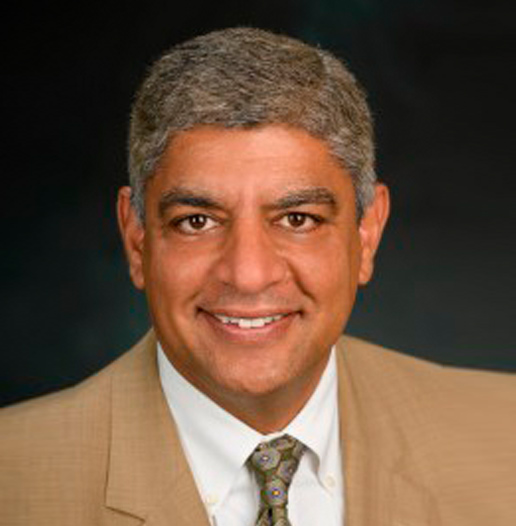During the 15th annual SERC Research Review on November 14-15, experts from across the SERC network will present their systems engineering solutions to a gathering of senior government officials, industry practitioners, and academic innovators. The occasion will also celebrate the achievements and impact since the SERC was founded 15 years ago as the first networked University Affiliated Research Center.
“This will be a momentous gathering for the SERC network and our partners in the government and systems engineering community,” said SERC Executive Director Dinesh Verma. “Every year, we look forward to presenting our research that aims to solve complex national security problems. This year especially we are eager to mark a milestone of 15 years with our colleagues and friends.”
The review will take place in Crystal City, Virginia, just across from Washington, DC. SERC Chief Scientist Dan DeLaurentis (Purdue University) will serve as master of ceremonies. On day one, the SERC Doctoral Student Forum will offer Ph.D. candidates in systems engineering an opportunity to present for the Dr. Barry Boehm Award for Doctoral Student Research Excellence. Dr. Jagadeesh Pamulapati, who serves as Director, Science and Technology Foundations, in the Office of the Under Secretary of Defense for Research and Engineering, will give keynote remarks.
Tentative keynote speakers for the second day include the Honorable Andrew P. Hunter, who serves as Assistant Secretary of the Air Force for Acquisition, Technology and Logistics, and Dr. Steven G. Wax, who is Performing the Duties of the Assistant Secretary of Defense for Science and Technology.
The three presentation tracks correspond to aspects of the SERC research portfolio. In the track on AI and security, Dr. Laura Freeman (Virginia Tech) will speak on “Digital Engineering for Test and Evaluation.” “The SERC Research Review is a unique venue where academia and the DoD exchange information on research challenges in DoD applications,” said Freeman, who serves on the SERC Research Council. “The unique mix of individuals make it a rewarding event to participate in as there are opportunities to build research collaborations and get feedback on the application of SERC research to current DoD challenges.”
Freeman’s colleague at Virginia Tech, Dr. Peter Beling, will present twice, first on “Measurable Requirements for Operational Resilience” and then on the “Trusted Artificial Intelligence Systems Engineering Challenge.” Dr. Chunlei Qu (Stevens Institute of Technology) will present “Quantum Technologies for Armament Systems.” Doctoral student Paul Szenher (Stevens Institute of Technology) will present on research he conducted with Dr. Brendan Englot, “Learning Enhanced Autonomous Navigation for GPS Denied Vehicles.”
In the track on human capital development, Dr. Nicole Hutchison (Stevens Institute of Technology) will discuss the “Defense Acquisition University Digital Engineering Simulation.” Dr. A. Emrah Bayrak will follow with “Defense Acquisition University Credential Development and Workforce Development in AI & Data Analytics.” Dr. Payuna Uday will present on “Policy Options to Promote DoD-Defense Industry Collaboration in STEM Education and Workforce Development Programs, Activities, and Outreach.”
Dr. Barry Ezell (Old Dominion University) will lead a talk on a “FLETC (Federal Law Enforcement Training Center) Training Systems Curriculum Study.” “Presenting the results of the two-year project is a wonderful opportunity to inform the attendees of the findings and our proposed way forward for FLETC,” Ezell said. “During the project, we faced many obstacles from the pandemic. But our team overcame all of them and it was wonderful to work with the professionals at FLETC.”
In the track on digital engineering, SERC CTO Tom McDermott will present on “Systems Engineering Modernization/Acquisition with Digital Engineering.” Dr. Bryan Mesmer (The University of Alabama in Huntsville) will discuss “Integrated Mission Equipment (IME) Architecture Process for Vertical Lift Systems.” Dr. Michael Orosz (University of Southern California will discuss “Space Systems Command Military Communications & Positioning, Navigation, and Timing Directorate – Mission Engineering and Integration of Emerging Technologies.”
Dr. Mark Blackburn (Stevens Institute of Technology) will discuss two topics, “Transforming Systems Engineering to Model-Based Systems Engineering” and “A Decade of Digital Engineering Research.” “The SERC Research Review brings SERC leadership, sponsors and other researchers together, and this is often the only time that some of them ever hear about our team’s research,” said Blackburn, who also serves on the SERC Research Council. “As the principal investigator on 18 SERC research tasks, I see a value in the opportunity to share the research and results, which have created more opportunities for follow-on research.”












